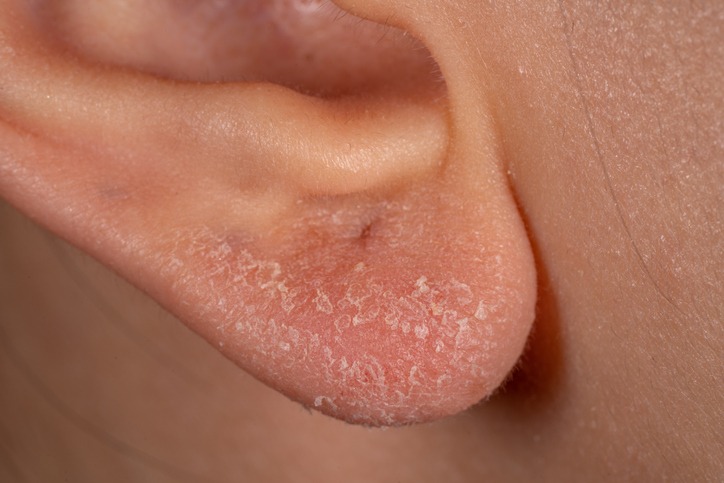Do your ears feel itchy, dry, painful, or irritated? These discomforts may be caused by a number of things – heat exposure, strong soaps, or a possible persistent skin issue, among all others. Consequently, the skin in and around your ears may appear red and flaky. Worst case scenario – the skin around your ears becomes infected.
Are you intrigued by all this? Read on to know more about dry ears. Aside from this, we also listed here some tips on how to get rid of acne scars.
Dry Ears in a Nutshell
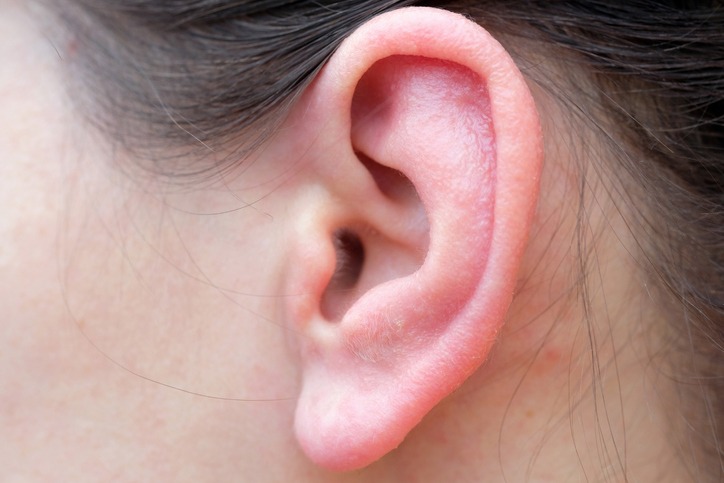
Dry ears are typically characterized by a buildup of dry, dead skin flakes and itching in the ear canal.
A variety of factors can cause dry ears. It could be as simple as the inability to produce enough earwax or over-cleaning the ears. Dry ears can also be associated with skin allergies and other dry skin disorders such as psoriasis, eczema, and dermatitis.
Some people may be concerned by the sight of loose, flaky skin in and around the ear, but it is the associated itch that might cause the most discomfort. However, you need not worry because, in most cases, it can be treated rather easily.
Causes Of Dry Ears
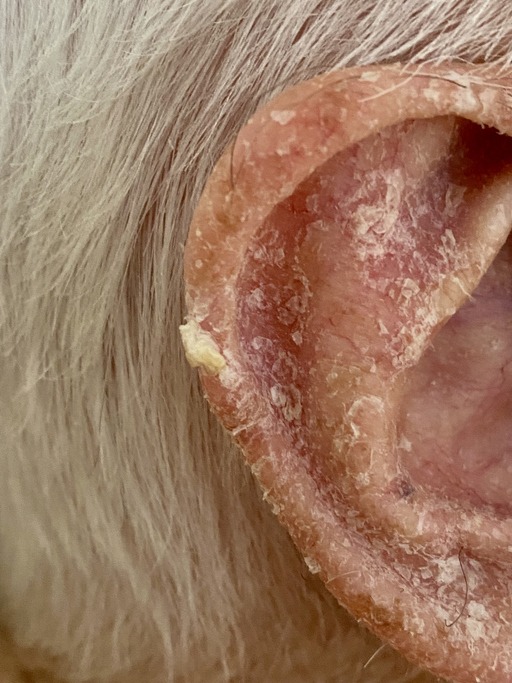
1. Environmental Factors
Your environment plays a huge role in causing dryness to the skin in and around your ears. For example, hot or cold weather can cause your skin to dry out. Your house is also an environment, so your skin may be affected by extreme temperatures – either too dry, too warm, or too cold.
Allergens or environmental irritants can also induce dryness in the outer ears. When the skin becomes irritated, it becomes dry, red, and itchy. People with sensitive skin are more prone to contact dermatitis.
Here are some environmental irritants that may affect the ears:
- Haircare products
- Shampoo
- Conditioner
- Soap
- Moisturizer
- Perfume
Harsh soaps can strip oil from your skin which leads to dryness. Other factors that can also dry out your skin are perfumes and hot showers.
Moreover, an allergic reaction is also a contributing factor. Wearing nickel earrings despite your nickel allergy will trigger the development of dry and crusty skin on your ears.
Other causes which may be attributed to one’s lifestyle include:
- dehydration
- sun exposure
- swimming in a chlorinated pool
- stress
- smoking
2. Skin Conditions
The presence of a chronic skin condition can also cause dry and itchy skin in and around the ears, including psoriasis, seborrheic dermatitis, and eczema.
- Psoriasis – is characterized by an overgrowth of skin cells due to autoimmunity. Because the old skin cells cannot slough off, they accumulate as thick, itchy skin plaques. A pink or red patch usually appears, which accelerates into a silvery-white plaque. These plaques can be itchy and make you feel very uncomfortable. In a process called cell turnover, skin cells that are normally grown deep in your skin start rising to the surface. This whole procedure takes a month. However, in psoriasis, it happens in a span of days, because your body cells rise extra fast. Additionally, psoriasis can affect the entire body.
- Seborrheic dermatitis – an inflammatory skin condition that results in dry, flaky patches of skin. These patches may flake off as yellow or white scales, which usually appear on the face, scalp, or inner ears. If the skin becomes infected, it may be followed by severe itching. Such conditions can cause dandruff and greasy or powdery scales on or behind your ears.
- Eczema or atopic dermatitis – another inflammatory condition that results in red, dry, painful, and itchy skin. As far as the ears are concerned, eczema most commonly affects the backs of the ears, ear folds, and where the earlobes attach to the face. Earlobes, ear apertures, conchal bowls, ear canals, and eardrums can also develop eczema sores. The dry spots may bleed when scraped, and an infection might develop when the skin becomes cracked.
Treatment of Dry Ears
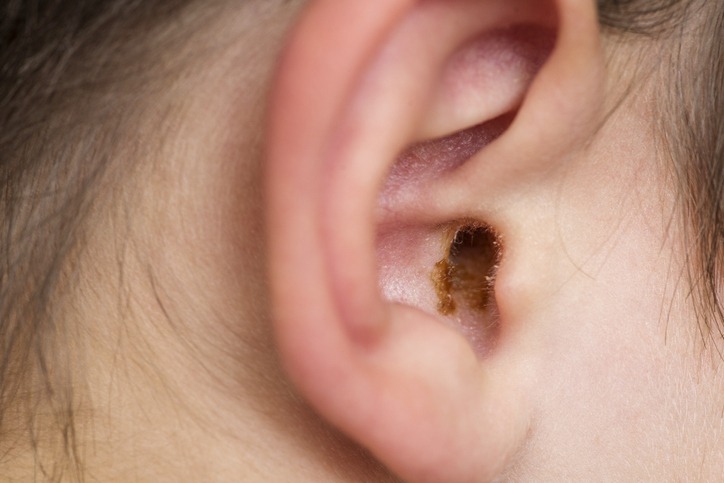
Depending on the cause of your symptoms, you can determine the best treatment for your dry ears. If your dry ears are due to your lifestyle or other environmental causes, you can more or less treat them at home. Simply remove the irritant or switch to healthier alternatives.
Otherwise, with the help of your doctor, medications, and good skin care practices at home, you can treat chronic skin conditions.
1. Restore and Lock In That Moisture
Keeping your ears moisturized is an essential step to treating dry ears. You can choose from creams, ointments, or lotions to help you lock that moisture to your skin. If a fungus is responsible for your patchy and crusty ears, doctor will prescribe you some antifungal ear drops. These moisturizers or ear drops may be used liberally as long as you need to relieve your symptoms. Apply these products right after you take a shower and pat your skin dry. However, factors that easily trigger flare-ups, especially in an eczema case, should not be used to help with the recovery process.
2. Review Your Routine
You should check your soaps, shampoos, and other personal care items to see if any of them are causing you irritation before trying anything else. Environmental factors may have also triggered your symptoms. Did you take any hot showers lately, or have you been out in the sun for quite a while?
Keep a journal of any of your symptoms and any items or products or possible situations that might be triggering them. You must only clean the outer surface of your ears, and that too, gently with a tissue or a washcloth. If you’re using cleansers, stop using them, and stay away from anything that makes your skin worse.
3. Time to Switch Soaps
Regardless of whether or not the products you are using are causing your symptoms, it would be best if you switched to gentler personal care products while your ears heal. When you shower or wash your face, choose gentle moisturizing shampoos and soaps that won’t dry out your skin. It will also help a lot if you eat nutritious foods.
4. Cleaning the Ear Safely
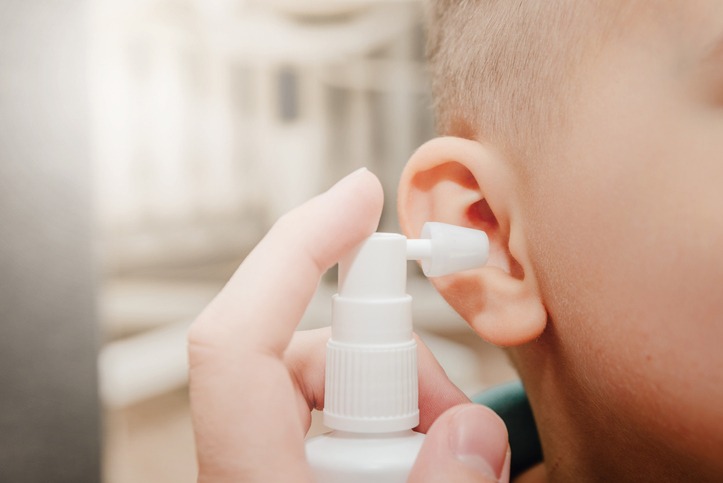
The most important step to not let your ears get dry in the first place is to clean them regularly and safely. If you’re sensing some hardened wax in the eras, soften it with the help of an eardrop first. Then, gently wipe out the ear canal with a damp and soft washcloth, or by using a bulb syringe. If the wax is still not removed completely, visit a doctor. Never put anything into your ear canal smaller than your finger. These things may include hairpins, cotton swabs and many other small objects. This can harm your ear and may also puncture the eardrum.
5. Combat the Itch

Dry skin itches a lot, but itching invites bacteria into your skin that can lead to infection if left unchecked. Cool compresses can be applied to irritated ears. Reduce inflammation by using a hydrocortisone-based cream or ointment. For best results, select one that has at least 1 percent hydrocortisone.
When You Should See a Doctor?
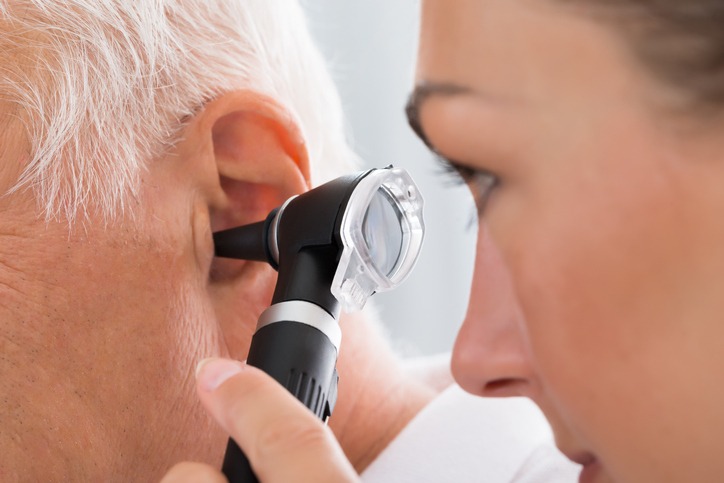
In case the dryness and itchiness in your ear persists, despite some home care and over-the-top remedies, do not act lazy and contact a doctor as soon as possible. It is crucial to seek proper medical advice and guidance, if your dry/itchy patches do any of the following.
- start oozing blood, fluid, or pus
- form crusts
- start hurting
- become red
Some people go extra miles with the cleaning of their ears, which becomes one of the main causes of formation of such dry patches. In such circumstances, consult a doctor and have him clean your ears. He will gently flush your ears with warm and sterile water, and won’t be causing any harm in the process.
OVERVIEW
As the adage goes, “An ounce of prevention is worth a pound of cure.” A proper skincare home routine can help avoid dry ears. Keep your ears clean and dry after washing them daily. Ten-minute showers are ideal; hot water should be avoided. To prevent skin from cracking, apply a mild, fragrance-free moisturizer to your ears once they’ve dried completely.
Although chronic skin disorders like seborrheic dermatitis and eczema can’t be prevented, they can be addressed with treatment. Keep an eye out for any skin-drying irritants or triggers. As soon as you detect other symptoms that concern you, such as persistent dry ears, immediately make an appointment with your doctor.

